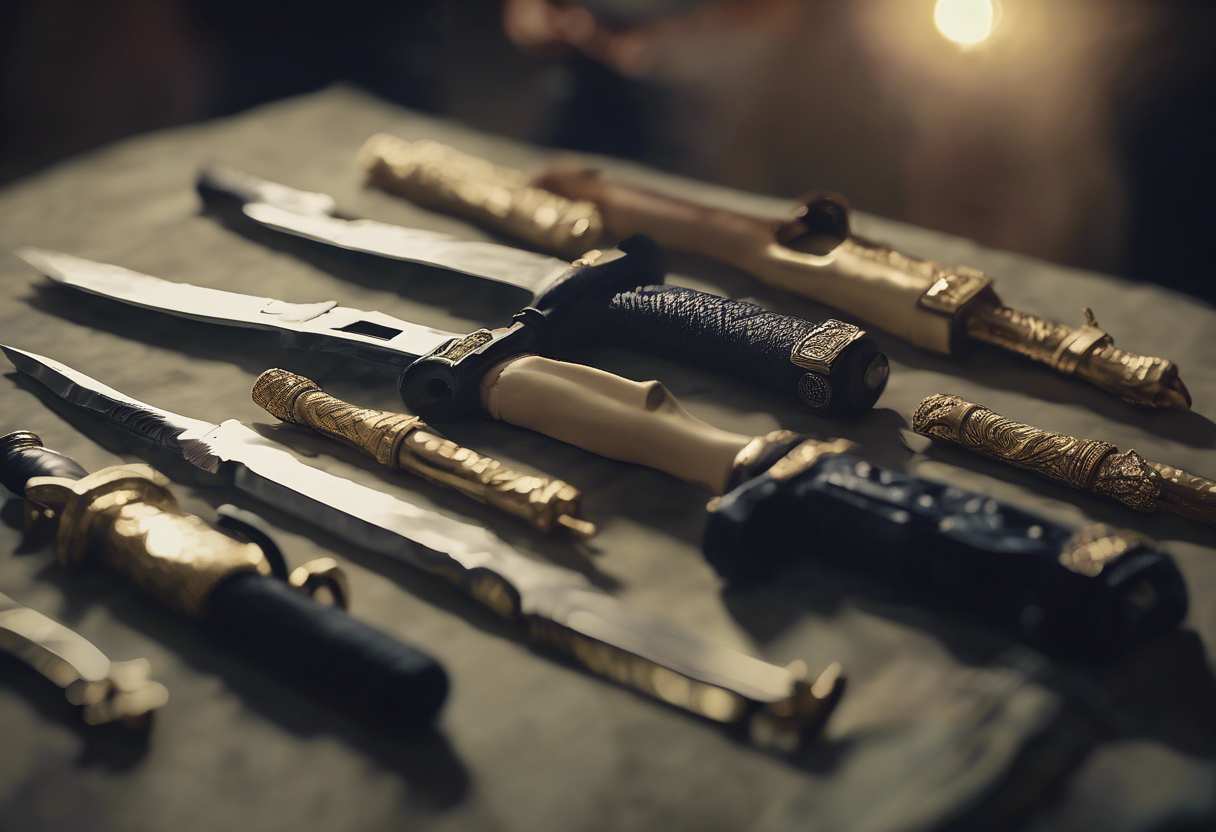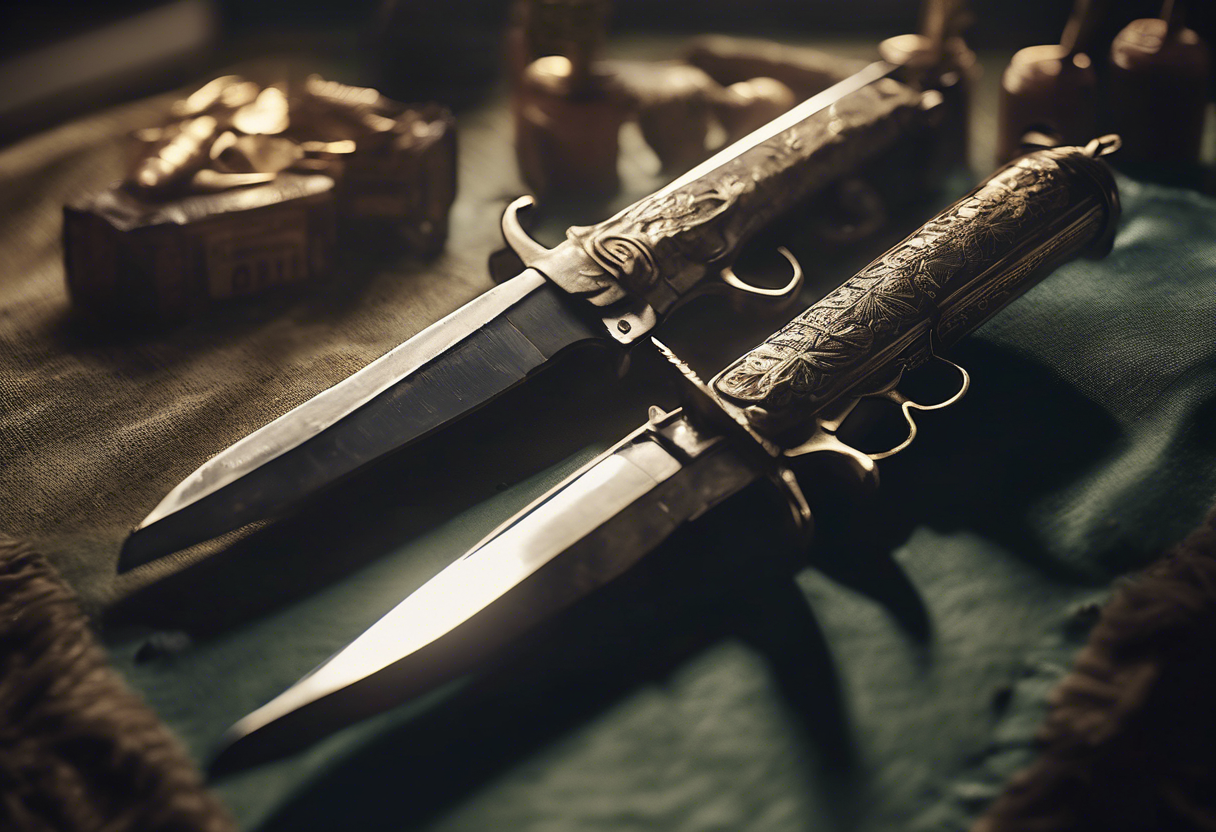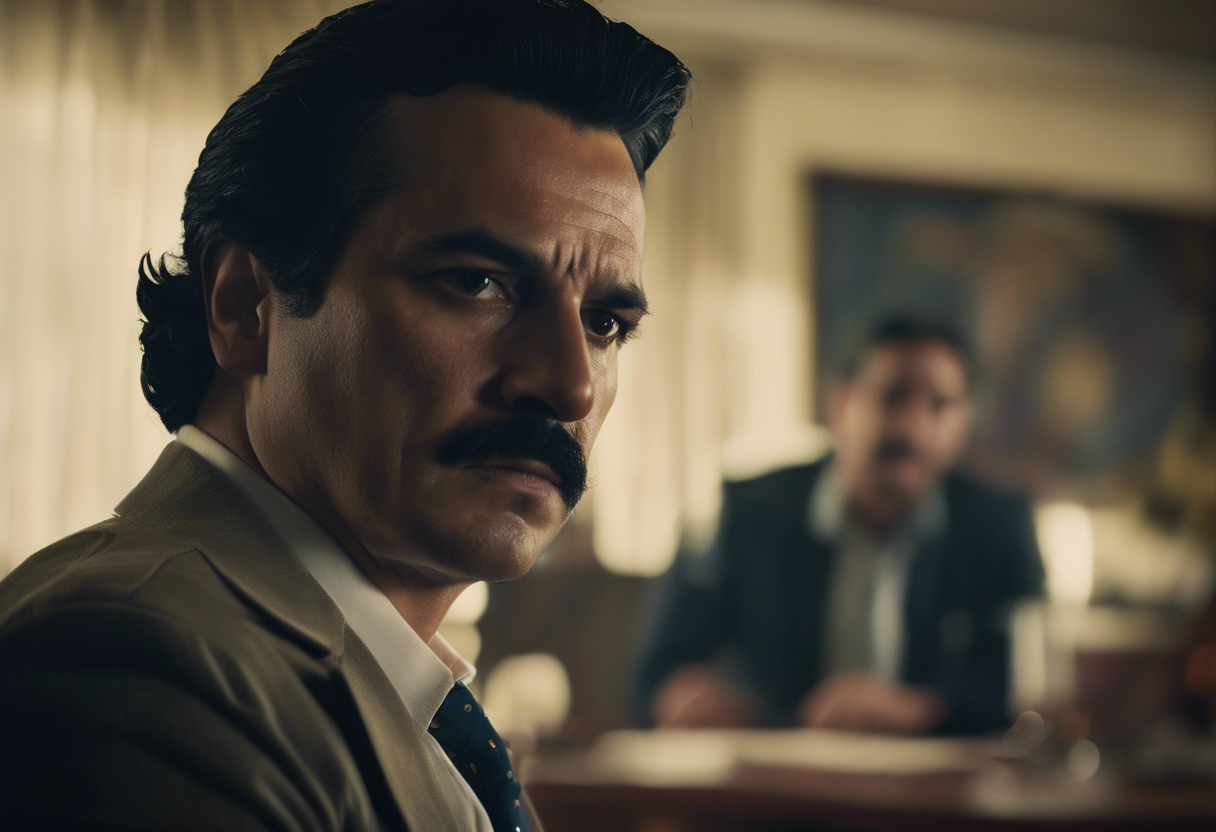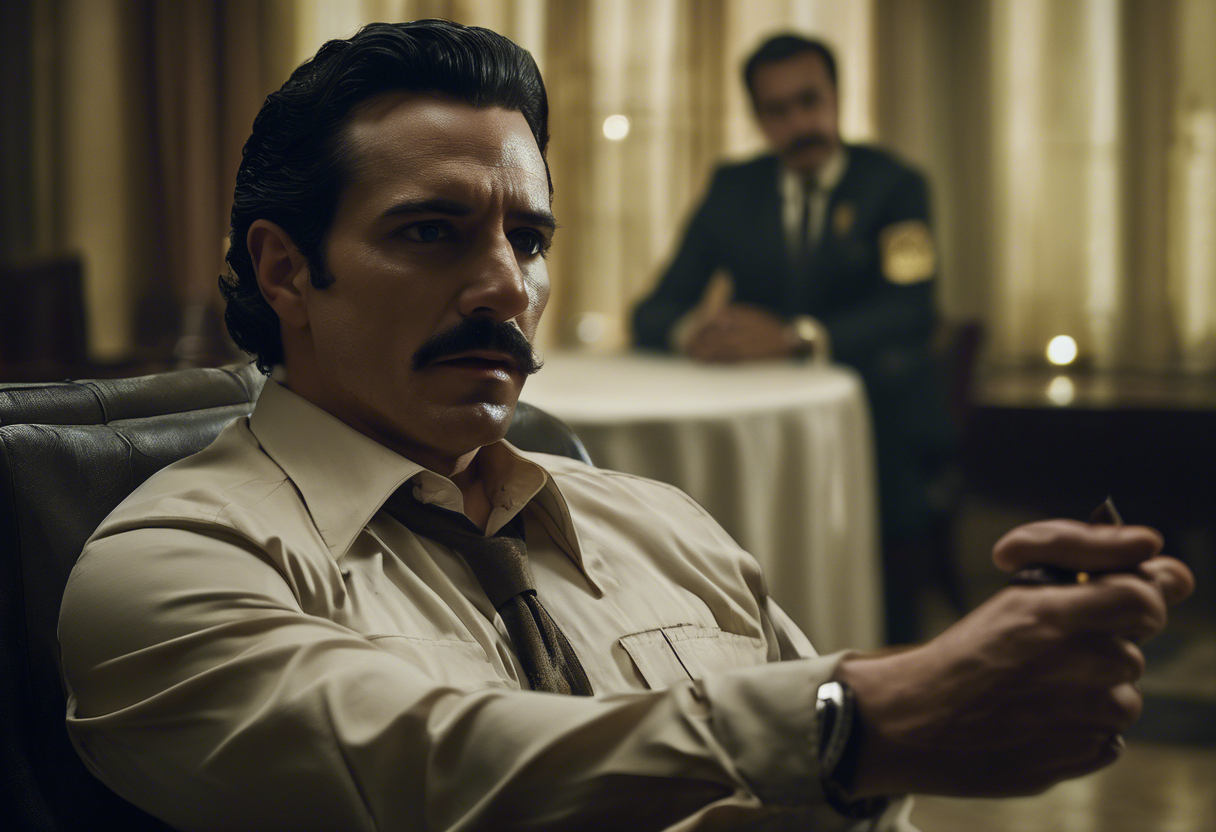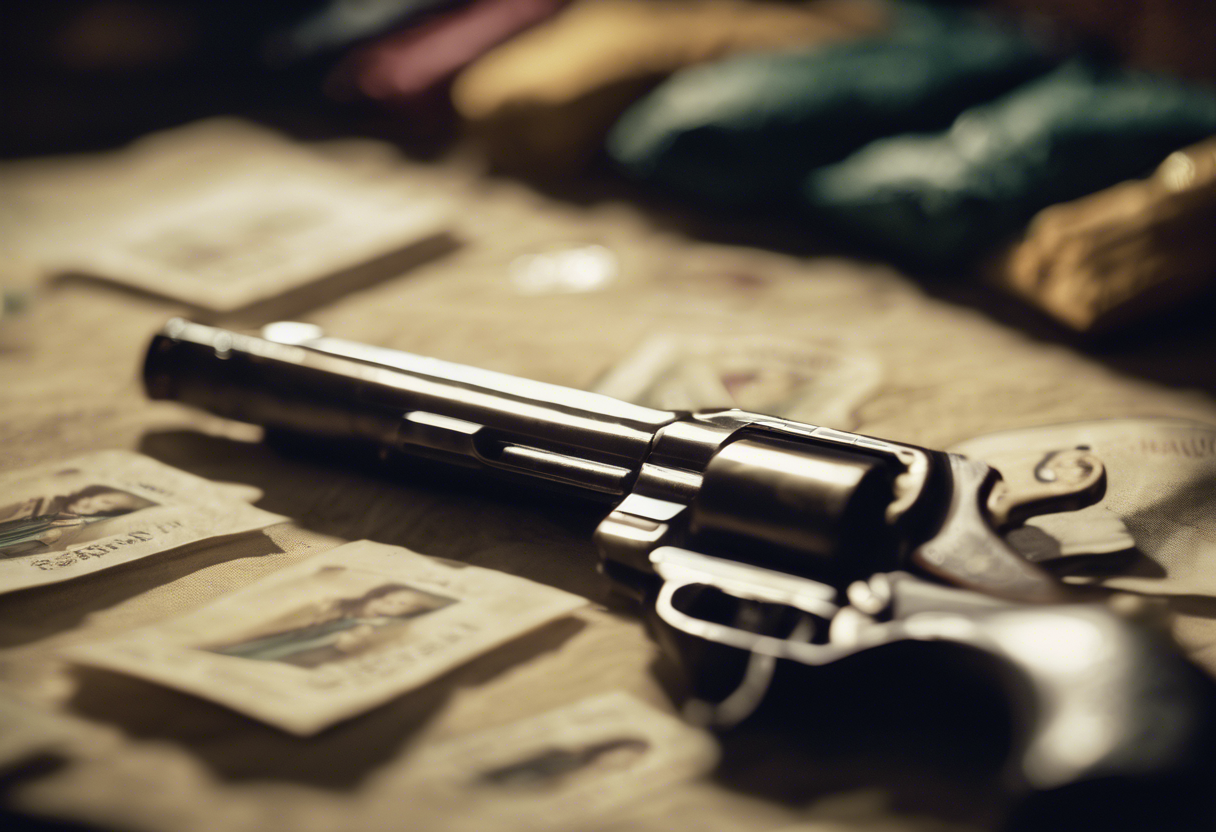Contents
Narcos Season 1: Episode 2 – The Sword of Simón Bolívar
Introduction
"Narcos" is a Netflix original series that chronicles the life and rise of the notorious Colombian drug lord Pablo Escobar and the law enforcement efforts to bring him down. Created by Chris Brancato, Carlo Bernard, and Doug Miro, the series is known for its meticulous historical research and gripping narrative. The second episode of the first season, "The Sword of Simón Bolívar," is directed by José Padilha and written by Nasim Pedrad, though the primary writing credits often go to the show’s creators.
This episode is significant because it delves deeper into the complexities of the Medellín cartel, the communist radical group M-19, and the personal and professional lives of the DEA agents tasked with dismantling the cartel. The episode’s title, "The Sword of Simón Bolívar," references a pivotal event in the episode and symbolizes the themes of revolution, power, and the use of symbols in both political and criminal contexts.
Plot Summary
"The Sword of Simón Bolívar" begins with a dramatic and symbolic act: the communist radical group M-19, led by Iván "The Terrible" Torres, steals the sword of Simón Bolívar from the Quinta de Bolivar Museum in Bogotá. This act is not just a theft but a powerful statement, as the group leaves a note saying, "Bolivar, your sword returns to the battlefield" [2].
This bold move by M-19 is part of their strategy to challenge the growing power of the Medellín cartel, which is rapidly expanding its influence under the leadership of Pablo Escobar. Escobar, portrayed as a complex figure with both ruthless and charismatic traits, is shown to be consolidating his power and vision for the cartel. He sees himself as a liberator of Colombia, much like Simón Bolívar, and this episode hints at his broader ambitions beyond mere drug trafficking.
Meanwhile, DEA agents Steve Murphy and Javier Peña are navigating their new roles in Colombia. Murphy, who has decided to take a more hands-on approach to the drug war, moves to Colombia with his family. He and Peña start to map out the structure of the Medellín cartel, understanding the intricate web of relationships and operations that keep it functioning [1].
Peña’s character is fleshed out in this episode as he tries to infiltrate the cartel by gathering intelligence through unconventional means, such as befriending prostitutes who frequent the same places as the cartel members. His informant, Helena, played by Adria Arjona, becomes crucial in uncovering a key meeting of the cartel, but her involvement puts her in grave danger. When Helena inadvertently insults one of the cartel’s top members, Gacha, Peña and his partner must intervene to save her, leading to a tense and violent confrontation [3].
The episode also explores the personal lives of the characters, particularly Escobar’s. Despite his involvement in criminal activities, Escobar is shown to be a family man who values his wife and children. However, this does not stop him from having affairs, highlighting the contradictions in his character.
The M-19’s actions against the cartel escalate when they decide to kidnap Marta, the sister of the Ochoa brothers, who are key figures in the Medellín cartel. This move is a direct challenge to the cartel’s power and sets the stage for further conflicts between these two groups.
Throughout the episode, the narrative is interwoven with symbolic elements. For instance, the cat that appears to Murphy, warning him that he is being watched, serves as a metaphor for the constant surveillance and danger that the DEA agents face in Colombia. Similarly, Escobar’s acceptance of Bolivar’s sword symbolizes his own aspirations to be a revolutionary leader, rather than just a drug lord [2].
The creation of the Medellín cartel is a central theme in this episode. The unification agreement among the various drug traffickers provides a moment of unity but also creates an opportunity for the police to target them more effectively. This agreement is a turning point in the episode, as it allows the DEA to gain crucial intelligence and begin to close in on the cartel’s operations.
The episode concludes with a sense of heightened tension and anticipation. The actions of M-19 and the DEA have set in motion a chain of events that will have far-reaching consequences for all parties involved. The personal and professional stakes are raised, and the stage is set for the intense conflicts that will unfold in subsequent episodes.
Themes and Symbolism
"The Sword of Simón Bolívar" is rich in themes and symbolic elements. One of the primary themes is the power of symbols and how they are used to convey messages and inspire actions. The theft of Bolivar’s sword by M-19 is a powerful symbol of their revolutionary ideals and their desire to challenge the status quo. Similarly, Escobar’s acceptance of the sword reflects his own vision of himself as a liberator and a symbol of hope for the poor in Colombia.
Another significant theme is the blurred line between good and evil. Escobar is portrayed as a complex character with both positive and negative traits. He is shown to be a family man and someone who wants to help the poor, but he is also involved in ruthless criminal activities. This complexity makes him a more nuanced and interesting character.
The theme of surveillance and danger is also prevalent. The cat that appears to Murphy serves as a constant reminder that he is being watched and that danger is always lurking. This theme underscores the risks that the DEA agents face in their mission to dismantle the cartel.
The episode also explores the theme of loyalty and betrayal. The M-19’s actions against the cartel and the DEA’s efforts to infiltrate the cartel highlight the tensions between loyalty to one’s group and the temptation to betray that loyalty for personal gain or survival.
Cultural Impact
"The Sword of Simón Bolívar" was well-received by audiences and critics alike. The episode’s dramatic and symbolic opening set the tone for the rest of the series, which would go on to be praised for its gritty realism and historical accuracy. The episode’s influence can be seen in other TV shows and films that have followed in its footsteps, particularly in the way they use symbols and historical references to add depth to their narratives.
Critical Reception
Critics praised "The Sword of Simón Bolívar" for its engaging storyline, strong character development, and the way it fleshed out the world of the Medellín cartel. The episode was noted for its ability to balance action, drama, and historical context, making it a compelling watch. Reviewers also appreciated the nuanced portrayal of Escobar and the DEA agents, which added complexity to the narrative [2].
Legacy
"The Sword of Simón Bolívar" has left a lasting impact on the television landscape. It set a high standard for crime dramas and historical series, influencing many subsequent shows. The episode’s use of symbolism and its exploration of complex themes have made it a benchmark for storytelling in this genre.
The episode’s continued relevance lies in its ability to capture the essence of a pivotal moment in history and to present it in a way that is both entertaining and informative. It remains a significant part of the "Narcos" series, which has been widely acclaimed for its historical accuracy and gripping narrative.

